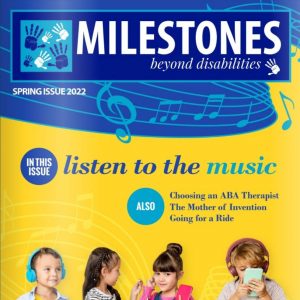
by IABA Team | May 23, 2022
School is almost out for summer. This doesn’t mean that your child will need to be at home all summer. There are many summer programs, activities, and events that are designed for children with autism in mind.
Before looking at fun activities and programs, however, be sure to talk with your child’s therapist. They may have some great summer programs that could be a great option.
Summer School and Therapy
Many autism and ASD programs don’t follow a typical school schedule. If your child attends a school or clinic that offers year-round care and therapy, see what they offer.
Before signing up for any summer school or therapy plans, however, you may want to ask a few questions:
- Will my child have the same instructor or teacher?
- Are the hours the same?
- What differences are there between summer & school year programs?
- Is the program the same?
- Is the provider (both for teachers & insurance) the same?
Of course, these questions may not be necessary if your child attends a year-round school or clinic. Always be sure that year-round schools offer the same services in summer–changes could lead to some behavioral hiccups.
Events & Festivals
We’ll preface this by saying that larger events are not for every child with autism. Big crowds and big noises can lead to sensory discomfort that could easily be avoided by not attending specific events (like music festivals or sporting events).
With that said, there are tons of events that go on locally every summer. Things like:
- Farmer’s markets
- Arts & crafts events
- Outdoor sales
- Certain areas or events at county fairs
Be sure that your child is OK with any expected noises or other sensory overloads that could be present at a given event. If you are unsure what an event entails or how big the expected crowd is, call the event organizer. Some events may have safe areas or activities specifically designed for children with autism.
Fun Summer Activities at Home
Of course, you can always set up some great summer activities for your child in their favorite comfort zone–home. If you child shows interest in specific types of activities, the following list may get you started towards creating some amazing activities:
- Camping (not necessarily overnight–tents and sleeping bags are fun any time)
- “Pool” days (inflatable pools, sprinklers, etc)
- Picnic days (help with packing the picnic and eating in the yard)
- Art activity days (coloring, painting, chalk, play-doh, etc)
- Rainy day reading or movies (snacks & entertainment)
These activities are just the tip of the iceberg. If your child has interests or loves activities that aren’t on this chart… find a way to incorporate them into their summer schedule!
ABA Therapy from IABA Consultants
If you have questions regarding autism treatment, education, or plans to use ABA therapy, we are here for you! Our goal is to make sure no family is turned away due to financial constraints. Our therapy team would love to talk to you. Find the location closest to you and give us a call. We’re here for you.

by IABA Team | May 19, 2022
IABA Consultants was recently featured in the spring 2022 issue of Milestones magazine. Click the image below to check out the article!


by IABA Team | May 16, 2022
Earlier this year, we wrote an article about Going Back to School for Kids with Autism. Believe it or not, this school year is almost over! That’s why we wanted to come back to this topic but with an obvious twist: reversing the topic.
This article is meant to provide some tips and information regarding easing children with autism back into a summer schedule. Some children with autism may be in year-long plans, so be sure to talk to your child’s therapist about any breaks or scheduling concerns you may have.
Develop a Transition Plan
Just like going back to school, devising a plan to transition from school to summer is crucial for easing a child into a new schedule. Talk to your child’s school or therapist about what are the most important things to keep in mind for summer.
Things like behavior practices and teaching methods should be consistent between parents and teachers. A drastic change in how behavior is handled from school to home can be damaging to your child’s care plan.
Taking Over for Teachers
Making a list of your child’s needs is an important step toward sending them into a comfortable school environment. Likewise, reading notes from and talking to your child’s teacher can update you on certain behaviors and changes that occurred over the course of the school year.
Make a list of behaviors and activities to keep front of mind for your child during summer break. This can help you think quickly if a problematic behavior or situation arises.
Easing into a Summer Schedule
For some autistic children, transitioning into a different schedule can be very difficult. Make sure to ease your child into a summer setting. This means keeping some degree of consistency with bedtimes, mealtimes, activity times, and other daily activities and routines.
Talking to your child’s teacher or therapist about in-school routines can also help you devise a schedule that makes sense to your child. Find out how long certain activities go on and build a summer schedule around that.
Changing into a full-on summer routine doesn’t have to be the option. New summer activities can replace school activities in the same timeframe. Replacing a teacher’s activity with an outdoor play schedule or indoor activity during the same time period can work wonders when it comes to continuity.
Vacations
Depending on a child’s sensitivities, vacations can be the hardest thing about summer when it comes to making a child feel comfortable. It’s hard to simulate a vacation and vacation schedules don’t usually resemble a regular daily routine.
Make sure to have visual aids or anything that will help your child understand your family is going to a fun place away from home a few weeks prior to any trip. Cementing an understanding is very important for a smooth transition.
Be sure to make sure that anywhere you stay or visit knows any special needs you have before going. If your child has special needs be sure to find lodgings and activities that can accommodate those needs.
Most importantly, be sure to make a list of everything your child may want or need on your trip. Favorite toys, objects, snacks, and other things may help your child transition to somewhere new.
Be sure to talk to your child’s therapist or pediatrician before making any vacation plans. They could have insight and information you may not think of on your own.
ABA Therapy from IABA Consultants
If you have questions regarding autism treatment, education, or plans to use ABA therapy, we are here for you! Our goal is to make sure no family is turned away due to financial constraints. Our therapy team would love to talk to you. Find the location closest to you and give us a call. We’re here for you.

by IABA Team | May 9, 2022
Going to the park is a great way to get some outdoor time with your family. Finding a park that an autistic child can feel comfortable at, however, can be a bit of a challenge.
Let’s go over a few general tips about public parks that may help a child with autism feel more comfortable.
Parks & Equipment
Many public parks today are fancier than the ones we had as kids. Plastic climbing walls, steering wheels, and bubble windows are regularly found at parks today. While some of these fun things may not lead to sensory discomfort, many parks have a few things to consider before scheduling a trip.
- Ground texture (woodchips, sand, rubber chips, etc)
- Surface texture (plastic, metal, wood, etc)
- Playset structure (heights, movement, noise, etc)
Taking a mental inventory of things your child is or is not comfortable with when you see a new park can alleviate potential problems before they arise. A lot of public parks have vastly different layouts from one another. Find the one that will work the best for your child’s needs.
Scheduling a Visit
Parks have busy times, just like any other public location. If your child has difficulties with large crowds or other children, finding a slower time could help smooth out a park visit. Things to keep in mind before visiting a park include:
- Time of day
- Day of the week (weekends are busy!)
- Time of year (holidays, 3-day weekends, spring break, etc)
- Businesses around the park (are there a lot of noisy trucks around during the day?)
- Seasonal changes (citywide events, etc)
If your child has difficulty dealing with crowds, make sure to plan your park visits accordingly. Also, be sure to monitor your child’s engagement during any park visit. What do they like? What do they not like? This can help you plan future trips.
What to Bring to a Park Visit
If you want to have a park visit that makes your child feel as comfortable as possible, you may have to bring a couple of things. Things that may help a park visit with a child with autism include:
- Favorite toys or objects
- Snacks & drinks
- Timer or visual aids for visit duration
- Favorite blanket for sitting or picnics
Be sure to ask your child’s therapist if they have any tips for park visits. On top of suggestions, they may have some fun activities that will make your next park visit a blast!
ABA Therapy from IABA Consultants
If you have questions regarding autism treatment, education, or plans to use ABA therapy, we are here for you! Our goal is to make sure no family is turned away due to financial constraints. Our therapy team would love to talk to you. Find the location closest to you and give us a call. We’re here for you.

by IABA Team | May 2, 2022
A few weeks ago, we wrote a blog on general tips to help children with autism feel comfortable at a doctor’s office. We mentioned finding a doctor who has specific practices for children with autism but didn’t go too in-depth.
This week, we want to focus on finding a great pediatrician for autistic children. This includes where to look, what to ask, and what to do before scheduling your first appointment.
How to Find A Pediatrician who Works with Children with Autism
Our previous article mentioned searching online for pediatricians who work with or specialize in children with autism. This is the best step to finding a large list of doctors who can help children with autism. To narrow down a search, the American Academy of Pediatrics (AAP) also has a searchable list to find pediatric specialists.
The AAP also notes looking for doctors with the initials FAAP after their name. This indicates they are board-certified members of the AAP which entail:
- Members (fellows) of the American Academy of Pediatrics (AAP)
- Committed to lifelong learning.
- Advocates for children and families.
- Up to date on the latest in child health.
The last 3 are especially important for children with autism, as new information is entering the field at a rapid pace. Be sure to find a doctor who is FAAP certified.
Questions to Ask a Pediatrician’s Office
Before scheduling an appointment with any pediatrician, you’ll want to have some important questions answered. Examples of questions to ask a potential pediatrician’s office include:
- Do they have experience with patients diagnosed with autism?
- Does the pediatrician have any specialties related to autism or ASD?
- Are there any special practices or procedures in place for autistic children?
- Is the office friendly to autistic children?
- Are there any special accommodations for autistic children?
If a potential pediatrician doesn’t answer your questions satisfactorily, be sure to ask the receptionist about other doctors that may help. Many doctors’ offices are part of a larger network and a simple referral could end your search on the spot!
Developmental Pediatricians
Developmental pediatricians are becoming more prevalent. Also called ‘pediatricians for autism,’ developmental pediatricians specialize in children with developmental issues. Developmental pediatricians can help create a comprehensive care plan for your child, one that is created specifically for their unique development.
The offices and practices of developmental pediatricians are often catered toward children with autism. This can include things like office structure, decorations, toys/activities in the waiting area, appointment procedures, and more.
While they are often the best choice, developmental pediatricians can be hard to find in some less-populated areas. Be sure to call any developmental pediatricians you are considering taking your child to as soon as possible. Like all specialists, developmental pediatricians are often booked weeks or months in advance.
ABA Therapy from IABA Consultants
If you have questions regarding autism treatment, education, or plans to use ABA therapy, we are here for you! Our goal is to make sure no family is turned away due to financial constraints. Our therapy team would love to talk to you. Find the location closest to you and give us a call. We’re here for you.



